NoCo Hemp Expo producer Morris Beegle, attorney Bob Hoban, lab specialist Christopher Hudalla and PR pro Diane Mulligan are among 10 experts below who opine on the state of the hemp industry.
April 26, 2023
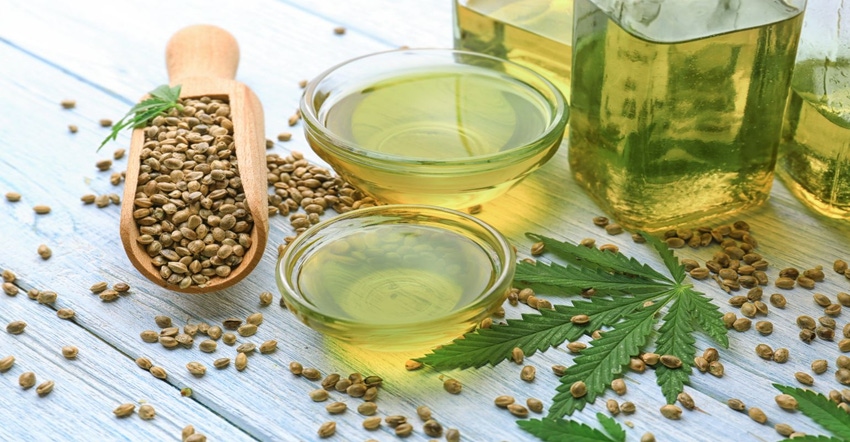
The 9th annual NoCo Hemp Expo was held in March at The Broadmoor in Colorado Springs. Natural Products Insider caught up with 10 experts who attended the event to reflect on the Expo and state of the hemp industry. Some of the remarks below have been edited for clarity.
Morris Beegle, producer of NoCo Hemp Expo and president of We Are For Better Alternatives (WAFBA) family of brands
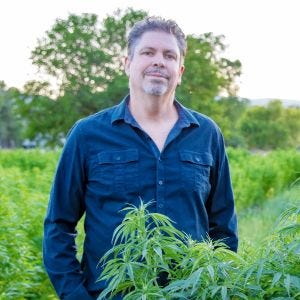
After the 9th annual NoCo Hemp Expo that recently took place in Colorado Springs, I am still quite optimistic about the future of the hemp industry. While show attendance is not what it was in 2019 prior to the pandemic, at which point the market was artificially inflated due to the overhype of CBD opportunities, the industry has matured and become more balanced on efforts for grain, fiber and cannabinoids. This year's show boasted the most interest in the fiber and grain markets that we have seen yet. I believe this is only going to increase year after year moving forward.
I've traveled internationally a significant amount the last several years, and from my observations, I think the industry will grow steadily for at least the next decade or so. We're seeing the adoption of better policy and regulations for farmers coming down the pipe, and climate-smart commodities are only going to gain momentum. This is a big positive for hemp, seeing it has more environmental benefits than other traditional crops and commodities. So, while things have taken longer than most of us had hoped, there's still a bright future for hemp in front of us.
Robert ("Bob") Hoban, Esq., leader of Clark Hill’s cannabis industry group
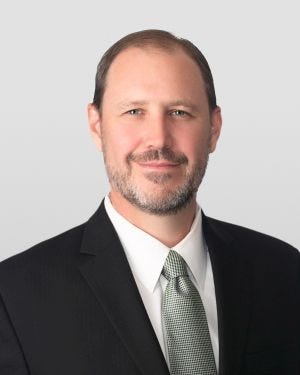
The hemp industry, once again, is at a crossroads. Since the 2014 Farm Bill, the U.S. hemp industry has been on a strange and twisting path. While most of us are aware of the so-called “fifty thousand uses of hemp,” many of these uses have not come to fruition as a practical matter. Instead, we have seen a laundry list of industry trends (primarily consumables) such as CBD, CBG, CBN, THCV, hemp flower, rare cannabinoids, delta-8 THC [D8], HHC and the like. Many of these ingredients are controversial and tend to cause a “split” in the hemp industry for purists who envision a widespread hemp fiber and grain market, and cascading uses associated with fuel, plastics, building materials and the like.
But Congress gifted the industry’s entrepreneurs with the broadest possible plain language (which, under the law, dictates congressional intent) of authorization/legality when it declared all salts, isomers, derivatives, compounds and extracts from the plant as lawful, non-CSA (Controlled Substances Act)-governed items and materials.
And the U.S. Court of Appeals for the Ninth Circuit has weighed in on some of these controversial compounds (such as D8) and deemed they fit “comfortably” within the Farm Bill definitions. So, needless to say, this has caused a stir/debate in the hemp industry. But the entire “family” of uses must be considered in the hemp industry—and ignoring these items, or maligning them, is unproductive, and nonsensical, frankly.
That said, we have seen tremendous evolution in farmer genetic choices (leaning towards heavier fiber and grain varieties), which serves to accelerate the grain and fiber markets. But the forthcoming Farm Bill is rumored to increase the allowable THC percentage to 1%, which would further the false notion that hemp farmers should focus on cannabinoid production rather than industrial uses, and such a change is bad public policy for a variety of other reasons. In addition, seed curing/drying and decortication infrastructure has been greatly developed, which positions the hemp industry for great strides in grain and fiber development, which is truly exciting.
Last, we see the development of hemp as an ESG [environmental, social and governance] tool. In other words, large-scale companies who require ESG programs (due to investor preferences, the law or anything in between) are turning to hemp and hemp companies for acquisition and/or integration because hemp is so uniquely positioned to provide a viable/cogent basis for internal ESG policy development.
In sum, growth exists. You just got to poke around.
Bruce Kennedy, reporter and analyst, Hemp Benchmarks
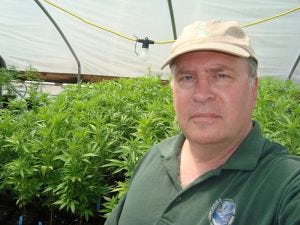
This was my fifth or sixth NoCo Hemp Expo. In comparison to other years, when you had a lot of "newbies" and others coming in—and looking for quick opportunities or business deals—most of those in attendance were established industry professionals. These are people who have several years of commitment to the hemp sector and who are in it for the long haul.
While hemp-derived cannabinoids are still an important part of the industry, there appears to be a lot more focus now on hemp fiber and grain production. Hemp fiber appears to be coming into its own, as fiber growers and processors make contacts with companies interested in hemp textiles, plastics and construction materials.
Any future expansion of the hemp sector, however, continues to face obstacles created by regulatory uncertainties, particularly from the federal government. Until there's a clear-cut regulatory pathway, defined by legislation, market stabilization and growth will most likely remain modest for the near future.
Many industry stakeholders are also looking for provisions in the upcoming 2023 Farm Bill that will help ease many of the current hindrances faced by hemp cultivators and producers.
Dan Fabricant, Ph.D., president and CEO of the Natural Products Association

Kudos to Morris Beegle for putting on such a widely attended event that really does get people talking, even about some uncomfortable topics, which is ultimately what moves people to act. Thanks to Steve Hoffman for getting me there.
There seems to be a greater understanding that if the same “old” messaging continues to get pushed as the solution to creating pathways to market for CBD, nothing will change, and likely a new way of engaging may be needed. The adage that we haven’t won the vote because we haven’t won the argument—this is especially true for conversations/public perceptions on daily amounts of CBD to use—is a contributing factor.
The frustration and subsequent apathy from the past 4-5 years of federal inaction is very real and colors key discussions, including: Why is the Farm Bill once again touted as the solution, when it hasn’t resolved the issues the past two times; Who is the actual champion(s) in Congress or the administration for hemp and the cannabinoids/CBD; And what should be done about “intoxicating” cannabinoids?
Delta-8 THC was created out of an economic play to do something other than take huge losses with all the CBD biomass that has lost significant value since 2019. Most understand that regulating federally, intoxicating substances may be an uphill battle to resolve. While people are saying the right things about working together, you can sense tension, especially by those closer to the supply side and farm side of the business as those struggles mount and are anticipated to continue without clear food/supplement paths to market for CBD.
The consumer-facing side of the business—the brands—still seem more concerned with big-dollar marketing initiatives (i.e., celebrity and pro sports endorsements) than with those resources going to campaigns to fight back federally for regulators to use current pathways. If we take the bait on FDA’s need for a new pathway to regulate CBD, I’m not sure hemp will be looked at with such promise if it must endure an 8- to 10-year FDA rulemaking.
We are about to enter a presidential cycle, so the question is what is needed to keep the issue in play federally. From my vantage, nothing will suffice short of a resource-intensive campaign hitting possibly all branches of government that gets the issue on the political radar of presidential candidates and/or the current administration. Short of that, we will be having similar discussions about the 2028 Farm Bill reauthorization.
Diane Mulligan, APR, president and CEO of M&C Communications
Dozens of company leaders shared their ideas and concerns at the M&C Communications NoCo 9 listening room. When we asked about crisis pre-planning, we learned few company leaders had a crisis response. With everything else these leaders must think through, it is understandable. But in such a volatile industry, we have seen troubles arise, and being prepared can help CBD/hemp businesses protect their brands.
Only one company interviewed had a “holding statement” ready to go. A holding statement is a pre-written template that can be quickly tweaked and released to the media during a crisis. It takes years to build a company’s reputation, but only minutes for it to be damaged by an unforeseen event. Even an industry event that doesn’t originate from the specific company can have a massive negative impact. Crafting a holding statement beforehand can help save a company’s reputation and works as a great team-building exercise for leadership.
Micro-influencers were also top of mind for our thought leaders. Many talked about the importance of authenticity and employing savvy social media influencers who know their audience and accurately represent their brand. Again, it was all about earning a customer’s trust, which leads to customer loyalty. None of the companies we met with were using big celebrities.
Bad actors corrupting the industry's reputation were mentioned numerous times. These are companies that aren’t truthful or transparent about things like ingredients or production practices. Basically, these companies are in the CBD business for the quick buck.
The bottom line is trust is the bedrock of a sustainable and profitable business. The companies in our survey understood that protecting their brand meant preparing for challenges, managing their dollars wisely and reinforcing their value as reputable companies to create or reinforce their trusted consumer base—the lifeblood of any successful business.
Christopher Hudalla, Ph.D., president and chief scientific officer of ProVerde Labs

As always, the NoCo Hemp Expo was a great opportunity to network and exchange ideas. There seems to be an increased trend in research and utilization of hemp as a fiber, especially in regard to building materials and biodegradable hemp plastics. Fiber has always been critically important in the history of hemp utilization, and it is exciting to see this area of the industry continuing to grow in importance again. It seemed there was a nice increase in exhibitors from this sector of the industry.
As Colorado has taken a fairly firm stance against intoxicating hemp derivatives—the contaminated synthetic cannabinoid products being produced nationally—this Expo did not seem to be dominated by these synthetic products. That was a nice change, as these products represent a significant detour from the roots of the cannabis industry, which now seem to be a major component of most hemp shows. The reduction in exhibitors from this area seems to be a clear sign of the waning regulatory tolerance for these products, and a clear benefit to consumers.
Brian Koontz, hemp program manager, Colorado Department of Agriculture

The NOCO 9 Hemp Expo was an extraordinary event for interacting with hemp industry professionals. The Colorado Department of Agriculture's booth was well attended by various hemp industry stakeholders, including active hemp producers and many interested in cultivating, which was encouraging.
Colorado has a commitment to encourage hemp cultivation. Fiber, grain and processing markets and these areas were well represented at both the expo trade show and during the three days of speaker spotlights.
In addition, 2023 Farm Bill priorities, including the proposed fiber/grain exemption and accelerating the regulatory process to allow the use of hemp as feed, were well covered during the event.
The Colorado Department of Agriculture will continue to advocate for more market and processing opportunities for Colorado hemp producers.
Asa Waldstein, principal, Supplement Advisory Group
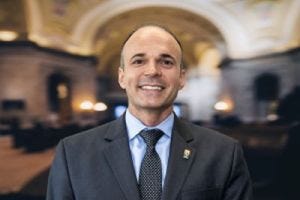
The educational sessions at this year's NoCo were great. Some of my favorites were a panel moderated by Morgan Davis on raising capital, M&A and deal flow, and hearing former Denver Broncos player Jake Plummer talking about how mushrooms helped him recover from a traumatic brain injury.
I also participated in a panel on certifications, COAs, compliance and claims. Many of the audience questions related to harmonizing specifications and industry terminology like defining what broad spectrum is. Thankfully, the American Herbal Products Association (AHPA) has done much of this terminology work with its “Hemp Lexicon.”
I also participated in a meeting about Farm Bill priorities for the hemp industry, which involved major trade groups and industry stakeholders like the U.S. Hemp Authority and those representing hemp fiber. The goal of the meeting was to find consensus on important issues facing the hemp industry.
We successfully reached agreement on topics such as revising the compliance level of hemp crops to 1% total THC and repealing the hemp felon ban. I heard one person say the meeting was reminiscent of pre-DSHEA (Dietary Supplement Health and Education Act of 1994) supplement industry meetings, which is a sign of the maturing hemp industry.
Frederick Cawthon, president, Hemp Alliance of Tennessee
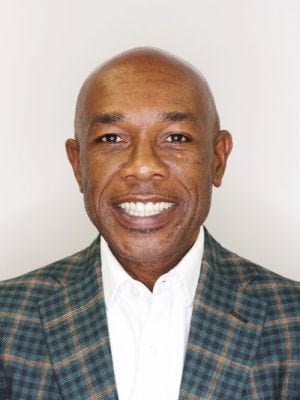
NoCo is one of the best events to connect with top organizations in the hemp industry, learn about advancements in technology, and stay in tune with how the industry is trending. My three key takeaways from NoCo9 are industrial applications, alignment and innovation.
First, there is more focus throughout the country on advancing the industrial fiber and grain markets. Second, hemp organizations across the country are finally heeding the call for us to align on our priorities and the message we communicate to legislative bodies and regulatory agencies. And finally, on the innovation front, improvements continue in the processing and automation space, which has a big impact on making hemp a more economically viable solution. The future of hemp is bright as the industry continues to progress and move forward.
Garrett Graff, Esq., partner, Moye White LLP

As always, NoCo Hemp Expo was a pleasure to attend: Greeting familiar faces, establishing new relationships, and observing the industry's evolution over the prior eight iterations of the show. This year was no different. As to the current state of affairs, the attention being paid to fiber and grain markets and sustainability is palpable, coinciding within the continued emergence of corporate ESG trends and focuses.
Infrastructure and production capacity continues the slow march towards commercialization. Year after year, there continues to be progress made. The promise in the fiber/grain marketplace and in the sustainable use of hemp as a disruptor in many different applications remain some of the most intriguing opportunities to investors still eyeing the space. Many investments funds much prefer investing in this space relative to cannabinoid-based products.
As to cannabinoids, the industry continues to wrestle on many fronts—amongst itself, with FDA and even, at times, with its cousins in the marijuana industry. Margins and profitability on conventional CBD products are challenging, to say the least, and unfortunately, there continues to be great consolidation amongst CBD companies given the FDA's continued [lack] of affirmative regulation and with no end in sight.
In lieu of FDA guidance, some operators have turned to different product types and novel cannabinoids—sometimes intoxicating—where business opportunities are aplenty, but for which there is little consensus or regulatory certainty within the industry and which presents challenges to legislators and regulators alike. Despite these challenges, there remain some bright spots, such as Charlotte's Web's partnership with Major League Baseball, but, largely, the cannabinoid brands and product manufacturers remain in the trenches, grinding day by day and persevering through challenging economic times, broadly and for the industry.
At NoCo 10, my lofty and ambitious hope is that there is affirmative, forward progress to report from Congress and FDA in regulating cannabinoids (though I'm not quite holding my breath), and that regardless, there is continued development of the fiber/grain and sustainability applications for hemp that the industry can rally around in unity and support.
You May Also Like




.png?width=800&auto=webp&quality=80&disable=upscale)